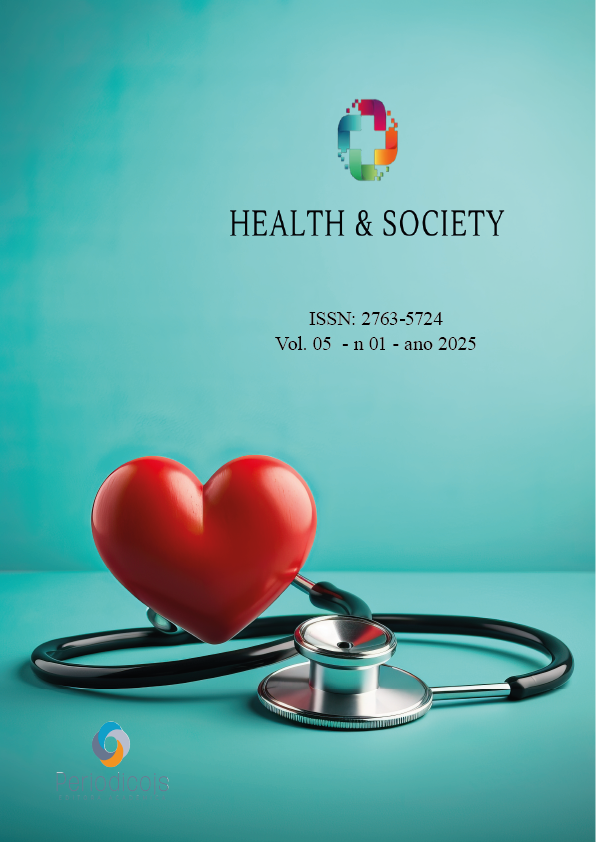Abstract
Mastectomy, although vital in the treatment of breast cancer, can have a significant impact on patients’ self-esteem and quality of life. Breast reconstruction plays a central role in physical and emotional recovery and is widely recognized as a surgery that goes beyond aesthetics, representing a symbol of rebirth and recovery of female identity. The aim of this study is to explore the advances and benefits of post-mastectomy breast reconstruction, addressing its psychological implications, available techniques and the challenges faced by patients in the rehabilitation process. This literature review analyzes advances in breast reconstruction after mastectomy, with a focus on patient-centered outcomes, psychological implications, technological innovations and challenges in resource-limited settings. The review covers reconstruction techniques such as the use of DIEP flaps and implants, as well as exploring barriers to access and the future prospects of the field. Breast reconstruction techniques include the use of prostheses, autologous flaps and hybrid approaches, which are chosen according to the patient’s clinical conditions and preferences. Studies show that reconstruction has a positive impact on mental health, reducing rates of depression and anxiety. However, challenges such as unequal access to the procedure and fears about complications are still barriers faced. In addition, advances in biomaterials and microsurgery have improved aesthetic and functional results, increasing patient satisfaction. Therefore, breast reconstruction is more than a surgical intervention; it is a process of physical and emotional transformation that contributes to giving new meaning to the cancer experience. Investing in policies that increase access to this surgery and in technological advances that optimize the results is essential to guarantee complete and humanized rehabilitation.
References
Plastic and Reconstructive Surgery, 146(5), 919-928.
Rocha, A. P., et al. (2021). Psychological outcomes of breast reconstruction after mastectomy: A systematic review. Psycho-Oncology, 30(3), 299-308.
Santoro, L., et al. (2019). Emotional well-being and quality of life in patients undergoing breast reconstruction. Journal of Clinical Oncology, 37(15), 1289-1295.
González, A. R., et al. (2022). Challenges in providing breast reconstruction in low-resource settings. The Lancet Oncology, 23(7), e297-e305.
Chatterjee, A., et al. (2022). Advances in breast reconstruction techniques: Trends and future directions. Plastic and Reconstructive Surgery Global Open, 10(5), e4563.
Garcia-Etienne, C. A., et al. (2021). Outcomes of DIEP flap breast reconstruction: A systematic review. Annals of Surgical Oncology, 28(4), 2234-2241.
Hidalgo, D. A., et al. (2023). The evolving role of implants in breast reconstruction. Current Opinion in Plastic Surgery, 30(2), 156-162.
Ho, A., et al. (2021). Application of 3D technologies in breast reconstruction: Innovations and clinical outcomes. Journal of Surgical Oncology, 124(7), 1125-1133.
Rowland, J. H., et al. (2020). Psychosocial outcomes after breast reconstruction: An integrative review. Psycho-Oncology, 29(9), 1383-1391.
Figueiredo, N. M., et al. (2022). Addressing barriers to breast reconstruction in underserved populations: A call for action. The Lancet Global Health, 10(6), e844-e850.
Smit, J. M., et al. (2023). Future perspectives in breast reconstruction: Patient-centered care and global equity. Plastic and Reconstructive Surgery, 151(3), 579-587.

This work is licensed under a Creative Commons Attribution 4.0 International License.
Copyright (c) 2025 João Pedro do Valle Varela, Jennifer Paes de Moura, Rodney Freire Andrade, Jacqueline Monfradini da Silva, Shayra Tofano Monteiro, Felipe Zanotti Duccini, Tullio Dalgobbo Samorini, Vitor Hugo Mendes da Cunha, Mariana Siqueira Dyna, Milena Salvador, Letícia Rodrigues de Almeida, Davi Pinheiro de Mello Canabarro, Emanuel Moura de Souza Santos, Marcos Louro de Hollanda, Adeânio Almeida Lima





